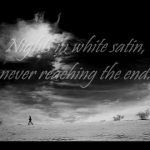Sundown – Gordon Lightfoot
“Sundown” by Gordon Lightfoot is a haunting and emotionally charged song released in 1974, and it became one of his most iconic hits. It reached number one on the Billboard Hot 100, marking the peak of Lightfoot’s commercial success. The track blends folk, rock, and country influences into a hypnotic melody that complements its lyrical tension. The song’s moody tone and minor key underscore a sense of unease and suspicion, setting it apart from Lightfoot’s more romantic or nostalgic work.
The lyrics of “Sundown” deal with jealousy, mistrust, and emotional entrapment in a turbulent relationship. Lightfoot sings about a woman who has a strong hold over him—one he’s both drawn to and wary of. The recurring line, “Sundown, you better take care / If I find you’ve been creepin’ ’round my back stairs,” hints at infidelity and the psychological toll it’s taking on him. The imagery is specific yet open-ended, allowing listeners to project their own stories into the song.
The woman in the song is believed to be inspired by Cathy Smith, Lightfoot’s girlfriend at the time, who later became infamous for her involvement in John Belushi’s death. Though Lightfoot never explicitly confirmed this, the relationship was known to be volatile. [Unverified] The sense of emotional danger and longing captured in the song reflects the inner turmoil Lightfoot was experiencing, giving the track an authenticity that resonated deeply with audiences.
Musically, “Sundown” is driven by a steady acoustic guitar rhythm and layered instrumentation that creates a brooding atmosphere. Lightfoot’s voice is restrained yet expressive, conveying both vulnerability and bitterness. The production is clean and understated, allowing the lyrical drama to take center stage. It’s a song that lingers long after it ends, with its blend of catchy melody and dark emotional themes.
“Sundown” stands as a testament to Gordon Lightfoot’s songwriting mastery—his ability to fuse simple musical structures with deeply personal and poetic storytelling. It captures the complexity of human relationships in a way that feels timeless, which is part of why the song continues to endure across generations.







![Eagles - Hotel California (Live 1977) (Official Video) [HD] Eagles – Hotel California (Live 1977) (Official Video) [HD]](https://nethugs.com/wp-content/uploads/2023/06/eagles-hotel-california-live-197-150x150.jpg)
July 3, 2025 @ 11:16 am
I have been unable to access this site for the past year, though I have been a member for years. Could you please email me with instructions? I have tried clicking on “Learn More” to no avail? Thank you.